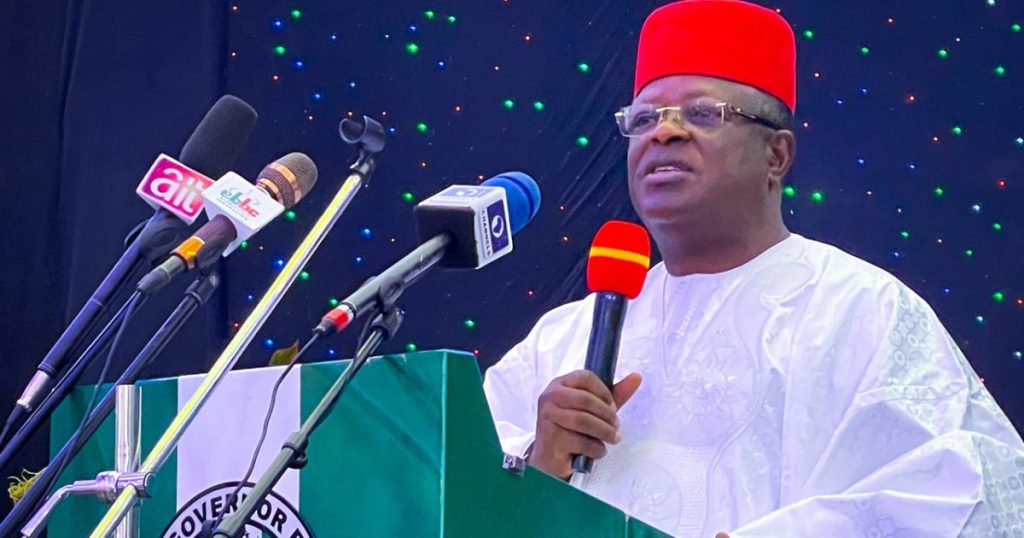The Federal Government of Nigeria, through the Ministry of Works, is advancing plans to launch a cashless tolling system on the Abuja-Keffi expressway and the dualised Keffi-Akwanga-Markurdi road. This initiative was initiated during a recent ceremony where the Minister of Works, David Umahi, inaugurated a committee designed to finalize the implementation framework for this system. According to Uchenna Orji, the Special Adviser on Media to the Minister, this cashless tolling initiative is part of a broader effort by the current administration to revamp road infrastructure and stimulate economic growth across the nation.
The Keffi-Akwanga-Makurdi road project spans approximately 221.8 kilometers and has been developed under an Engineering, Procurement, and Construction-Finance model. Remarkably, 85% of the funding has been secured from the China Exim Bank, while the Nigerian government provides the remaining 15%. This ambitious $542 million project was executed by the China Harbour Engineering Company Limited. An essential provision of their agreement stipulates that the company will manage tolls on the road to recoup costs associated with its construction and subsequently pay back the loan provided by the bank.
During the inauguration event, Umahi emphasized that the cashless tolling system aligns with the Highway Development and Management Initiative, which aims to foster a robust and sustainable transportation ecosystem. He articulated that this initiative forms a cornerstone of President Bola Tinubu’s agenda for revamping Nigeria’s road sector. Moreover, he urged the committee to abide by the Terms of Reference and to form an extensive implementation master plan that meets the economic and social objectives of the initiative.
Part of the committee’s responsibilities includes formulating the cashless tolling system’s operational framework and recommending potential locations for relief stations along the highways. Umahi outlined the concept of relief stations, drawing from global best practices where such stations include amenities like supermarkets, clinics, security services, and parking facilities. He stressed the necessity of enhancing security along federal roads, with an aspirational goal of a maximum 10-minute response time for any incidents. The plan includes installing CCTV and solar lights throughout the expressway, thereby promoting safety and service efficiency.
Umahi reiterated that this initiative is crucial for attracting sustainable private sector investment, improving the quality of Nigeria’s road assets, and accelerating economic development. He posited that the project would not only enhance road infrastructure but also spur business and create job opportunities, ultimately benefiting the general populace. The overarching aim is to create a more organized transportation system that will serve as the backbone of Nigeria’s economic landscape.
In her introductory remarks, Mrs. Ugwu-Chima Nnennaya, Head of the PPP Unit at the Federal Ministry of Works, highlighted that the inauguration was an integral part of the ministry’s mandate to draw private sector investment for the development and management of the federal road network. She referenced the Highways Development and Management Initiative, which aims to implement order, accountability, and profitable management of the highways, in line with relevant policies and regulations. Lastly, the newly appointed Chairwoman of the committee, Jummai Katagum, pledged on behalf of her team that they would deliver on their responsibilities, drawing from a cross-section of members from various governmental departments. The committee is expected to submit its report within two weeks.














